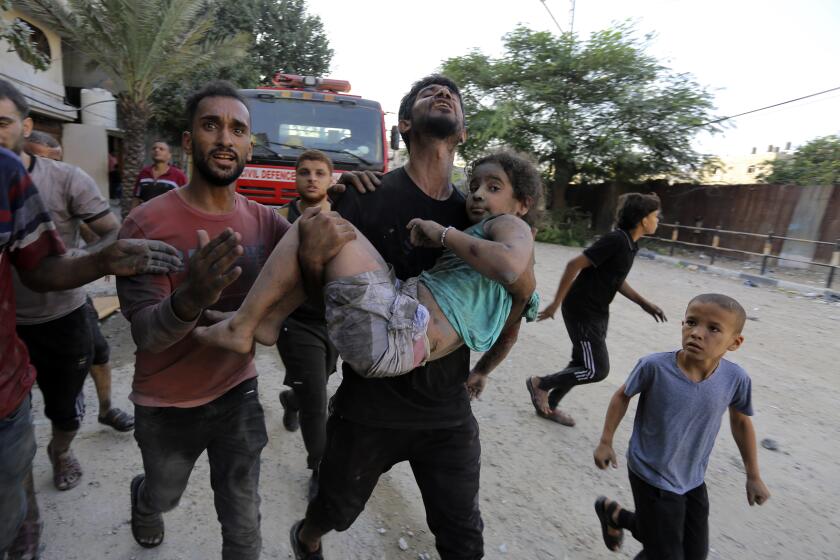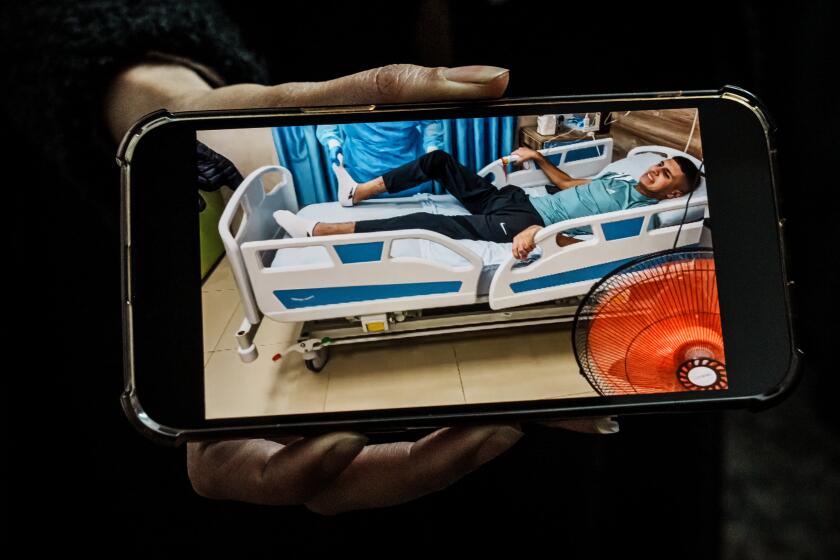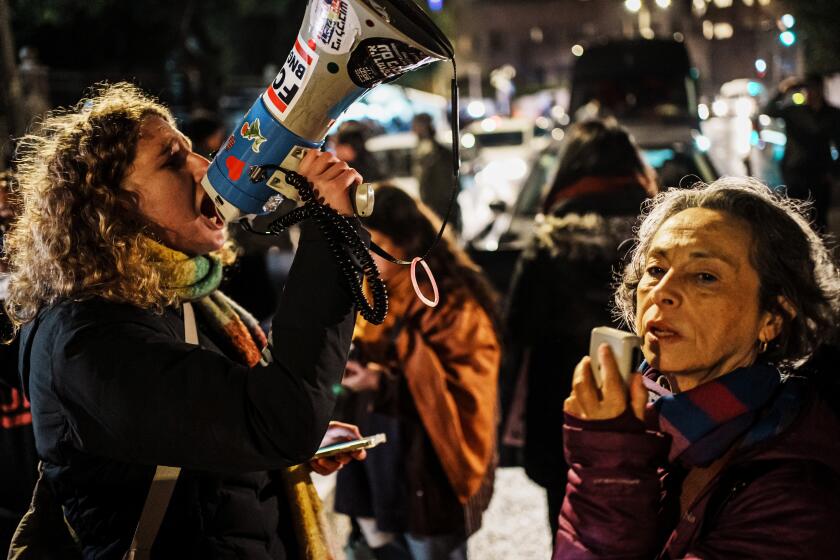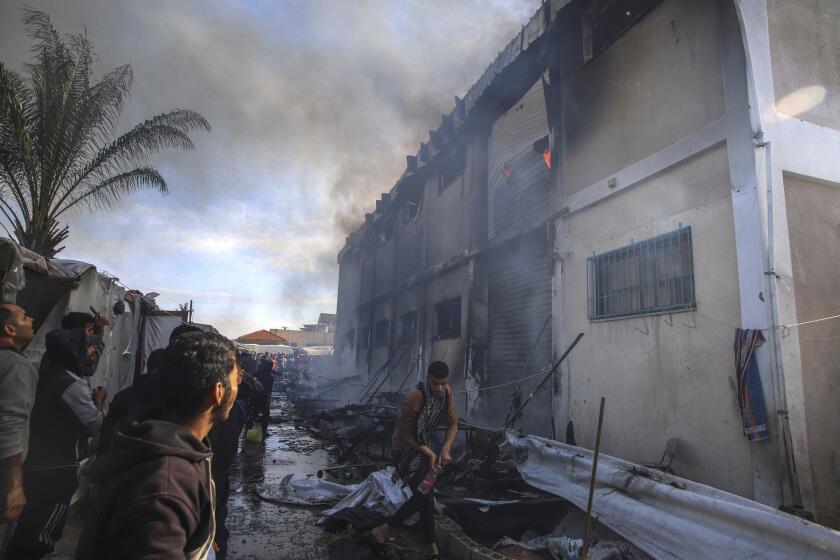Israel issues its most detailed warning to Hezbollah as war in Gaza nears 4-month mark
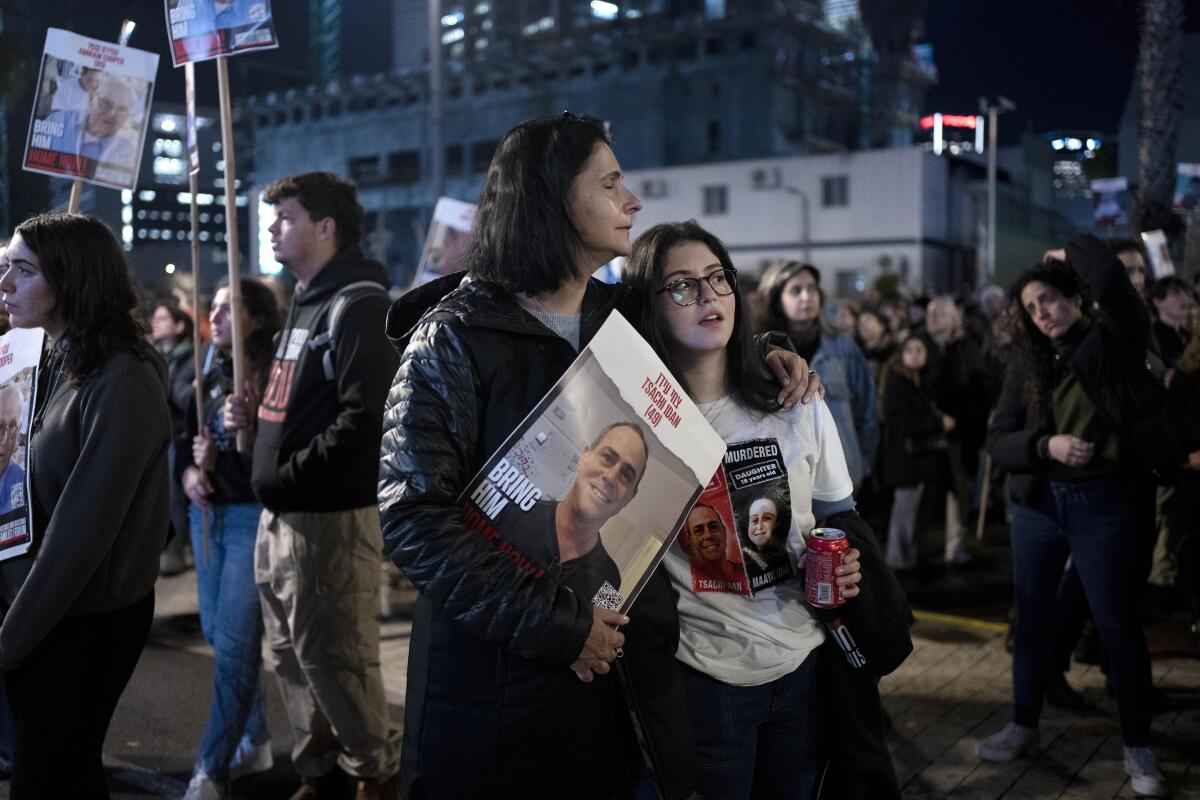
- Share via
RAFAH, Gaza Strip — Israel’s military on Saturday issued its most detailed warning yet to Hezbollah in neighboring Lebanon that it would be “ready to attack immediately” if provoked, as it recounted its actions along the northern border during four months of war in Gaza and made a rare acknowledgment of dozens of airstrikes inside Syria against the militant group.
“We do not choose war as our first priority, but we are certainly prepared,” military spokesperson Daniel Hagari said, adding: “We will continue to act wherever Hezbollah is present; we will continue to act wherever it is required in the Middle East. What is true for Lebanon is true for Syria, and is true for other more distant places.”
The comments followed the defense minister’s warning that a cease-fire in Gaza against the militant group Hamas wouldn’t mean Israel wouldn’t attack Hezbollah as needed.
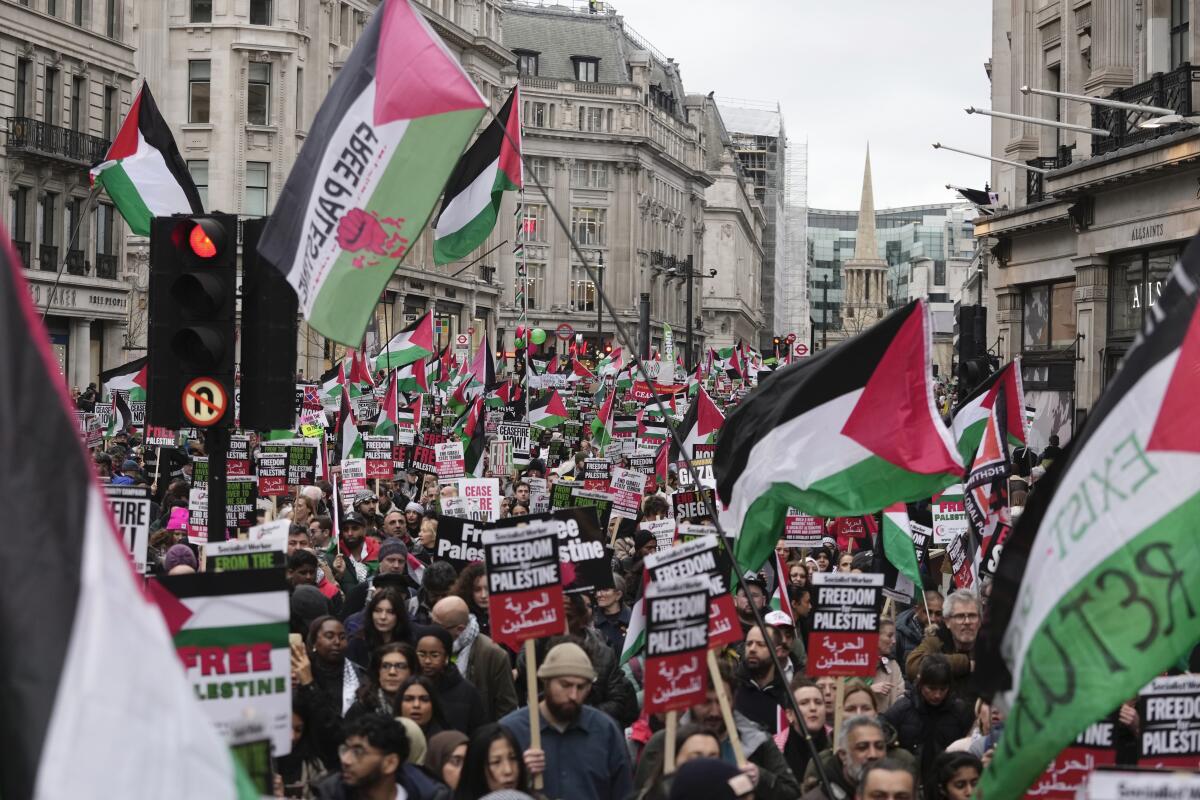
Efforts to close wide gaps between Israel and Hamas in pursuit of a cease-fire continued in the region where concerns about a wider war with Iran-allied groups remain. A top Hamas official, Osama Hamdan, said the group was studying the proposal put forward by the U.S., Egypt, Qatar and Israel but insist on Israel accepting conditions including a permanent cease-fire.
The war in Hamas-run Gaza has leveled vast swaths of the tiny besieged enclave, displaced 85% of its population and pushed a quarter of residents to starvation. The Health Ministry in Gaza said Saturday that 107 people were killed over the last 24 hours, bringing the wartime total to 27,238. More than 66,000 people have been wounded.
In Gaza’s southernmost town of Rafah, at least 17 people, including women and children, were killed in two separate airstrikes overnight, according to the registration office at Abu Yousef al Najjar hospital, where the bodies were taken.
Civilian deaths in Gaza have fueled global outrage. But many Israelis, still raw from Hamas’ Oct. 7 attack, have scant interest in the war’s toll on Palestinians.
The first strike hit a residential building east of Rafah, killing at least 13 people from the Hijazi family. The dead included four women and three children, hospital officials said.
“Two children are still under the rubble, and ... still we don’t know anything about them,” relative Ahmad Hijazi said.
The second struck a house in Rafah’s Jenena area, killing at least two men and two women.
More than half of Gaza’s population of 2.3 million has taken refuge in Rafah and surrounding areas.
Israel’s defense minister warned earlier in the week that Israel might expand combat to Rafah after focusing on Khan Yunis, the largest city in southern Gaza. The statement alarmed aid officials and diplomats, and Israel would risk significantly disrupting strategic relationships with the U.S. and Egypt if it were to send troops into Rafah, a key entry point for aid.
In Khan Yunis, where Israel’s military said operations would continue for several days, the Palestinian Red Crescent said at least 11 people were injured when Israel’s military fired smoke bombs at displaced people sheltering at its headquarters.
Experts say Israel’s deadly raid on a West Bank hospital may have violated international laws, including a ban on combatants posing as doctors or civilians.
It followed a siege that Israel’s military has carried out on the Red Crescent’s facilities for 12 days, the group said, adding that it had documented the killing of 43 people, including three staff members, in the buildings by Israeli fire during that time.
Israel’s military didn’t address the charity’s allegations of firing on the buildings, the killings or the blocking of access, and asserted that the Al Amal Hospital facilities had adequate fuel and electricity.
Israel says it’s determined to crush Hamas and prevent it from returning to power in Gaza, an enclave it has ruled since 2007, in response to its Oct. 7 attack that killed about 1,200 Israelis and triggered the war.
Hamas continues to hold scores of the roughly 250 hostages taken in the Oct. 7 attack, after more than 100 were released during a one-week truce in November. Those releases were in exchange for 240 Palestinian prisoners.
More than three months into the Israel-Hamas war, the families of hostages held in Gaza have grown disillusioned with Israel’s military operations.
Thousands of people gathered again in Tel Aviv on Saturday evening for anti-government protests to express growing frustration at how Prime Minister Benjamin Netanyahu and his administration have handled the war.
“If we need to stop the war now and call for a cease-fire in order to bring those people back home to their families, and start to rebuild them and take care of them, that’s the most important thing for us to do,” said one protester, Karen Levy.
In a sign of Hamas’ resilience despite Israel’s deadly air and ground attacks in the last four months, four residents and a senior official in the militant group said it has begun to resurface in areas where Israel withdrew the bulk of its forces a month ago, deploying police officers and making salary payments to some of its civil servants in Gaza City.
The four Gaza City residents said that in recent days, uniformed and plainclothes police officers deployed near police headquarters and other government offices, including near Shifa Hospital, the territory’s largest. The residents said they saw the return of civil servants and subsequent Israeli airstrikes near the makeshift offices.
The return of police marks an attempt to reinstate order in the devastated city after Israel withdrew a significant number of troops from northern Gaza last month, a Hamas official said, speaking on condition of anonymity because he was not authorized to talk to the media.
The official said the group’s leaders had given directions to reestablish order in parts of the north where Israeli forces had withdrawn, including by helping prevent the looting of shops and houses abandoned by residents who had heeded repeated Israeli evacuation orders and headed to southern Gaza.
The International Court of Justice’s ruling comes at an early stage in South Africa’s case alleging that Israel’s actions in Gaza amount to genocide.
Since seizing control of Gaza nearly 17 years ago, Hamas has been operating a government bureaucracy with tens of thousands of civil servants, including teachers and police who operate separately from the group’s secretive military wing.
Israeli military leaders had said that they had broken up the command structure of Hamas battalions in the north, but that individual fighters were continuing to carry out guerrilla-style attacks. Israel claims to have killed more than 9,000 Hamas fighters.
Jobain reported from Rafah and Magdy from Cairo. AP writers Julia Frankel in Jerusalem and Jamey Keaten in Geneva contributed to this report.
More to Read
Sign up for Essential California
The most important California stories and recommendations in your inbox every morning.
You may occasionally receive promotional content from the Los Angeles Times.
